Hidden Meanings Behind the 2017 Film,
"Beauty and the Beast" (Spoilers)
Reviewed by Joy Ramos Davis
Synopsis: Raised in a small village, Belle longed for more in life. When her father, Maurice, got lost on his way to market, he came across a castle under a spell by the Enchantress, Agathe. She turned the Prince into a Beast and his staff as objects. The spell can only be broken if he can love another and earn her love before the last petal on the rose falls; otherwise, it's permanent. Belle heads for the castle to save her father who has been imprisoned by the Beast. Could she be the one to break the curse?
Warning: Spoilers within Presentation
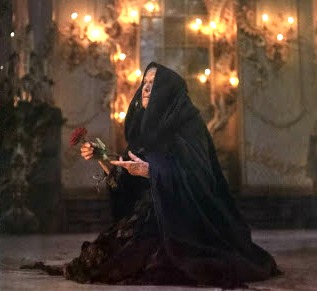
Under the Enchantress' Spell
Welcome to "Conscious Movie Reviews." I'm your host Joy Davis and here to review the live animation of the Disney classic, "Beauty and the Beast." Special thanks to Michael Sheridan, a world renowned dream interpreter and Herbalist Denise Joy, for contributing some of the symbolic meanings within the film.
While hosting a ballroom dance at his castle, the Prince was interrupted by an intruder who offered him a rose in exchange for shelter from the storm. Repulsed by her appearance, he coldly refused and turned her away, which cost him dearly.
As an Enchantress named Agathe in disguise, she cast a spell on him to become a beast that matched his hideous nature, while transforming the others within the castle into inanimate objects. All memory of the castle was erased from the minds of nearby villagers. The only way to stop the curse is if the Beast can love another and earn her love before the last petal on the rose falls; otherwise, it's permanent.
Traditionally, women in folklore either portrayed their matriarchal culture or have supernatural powers like Agathe. She was, more accurately, a healer. The Prince was already tainted in childhood from being raised by his father, a brute, after the death of his mother. The adults around him were complicit in indulging his beast nature. It's his shadow self that must die before his True Self can be revealed, so casting a spell on all of them was a form of tough-love parenting.
When "Beauty and the Beast" was first written in 1740, it was during the Rococo movement in French art that reflected the ornamental and elegant design featured in the film that enhances romantic love. In opposition to the artistic tastes of aristocracy and their tyrannical rule, the Enlightenment Period, also known as the Age of Reason, emerged throughout Europe to champion conservatism and egalitarianism that lead to the bloody, French Revolution. Taxing commoners, like the Prince had done, to acquire beautiful objects for his castle, was downright criminal - an unfair distribution of wealth. Enlightenment thinkers of the era would definitely support a curse to put the Prince's hedonistic lifestyle of opulence and pleasure in check.
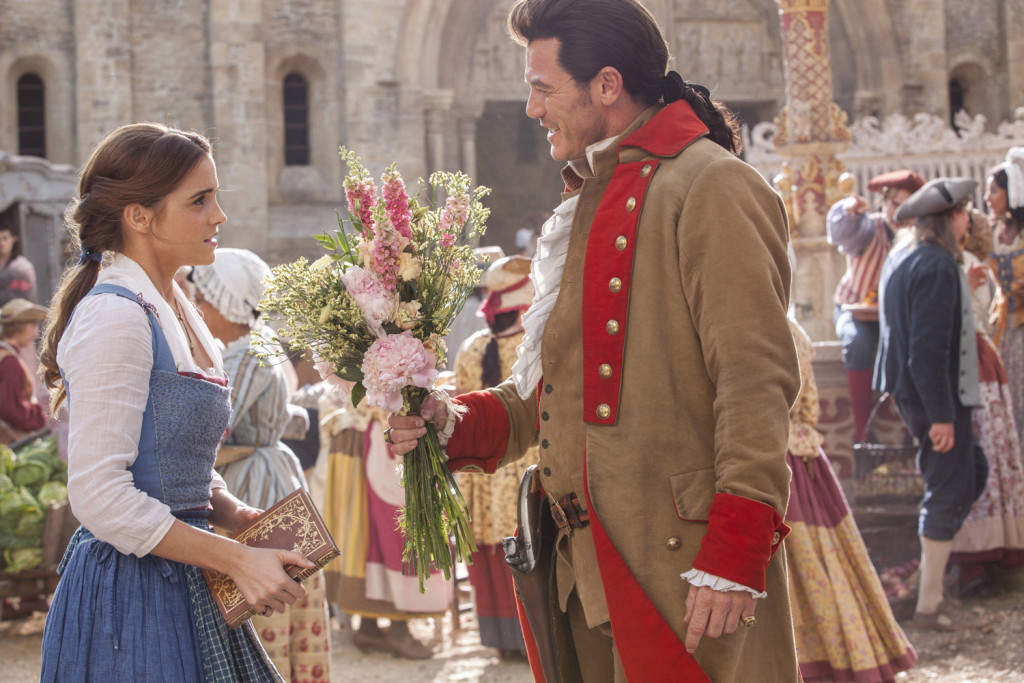
A Lovely Maiden of the Village
Nearby in the village of Villeneuve lived Belle, whose name stands for "beauty." Her father, Maurice, was the local inventor and painter. Belle loved to read, which made her seem odd and peculiar to the townspeople. Through books, she longed for more, beyond her provincial life.
The villagers represented the collective consciousness that's more traditional and rigid, clashing with Belle's love of the arts from reading books. It is a solitary, inner pursuit that was learned from her father's example as an artist as artists tend to break through pre-conceived ideas and perceptions about the world. They tend to go inwardly, tuning in to the silence - the source of their creative impulses that is a vibrant, free-flowing and expansive energy to express from their distinctive, True Self.
Considered a real catch by Gaston, a former soldier and real jerk, he was persistent about making Belle his trophy wife. She was, to him, argumentative and beautiful, but much better than the local women who threw themselves at him. Belle found his narcissism a turn off.
As a young maiden coming into womanhood, Belle must leave the safety of home by venturing into an unknown world to become autonomous. The maturation process is typically more painful, where the emotional stakes are higher for adolescent girls than boys.
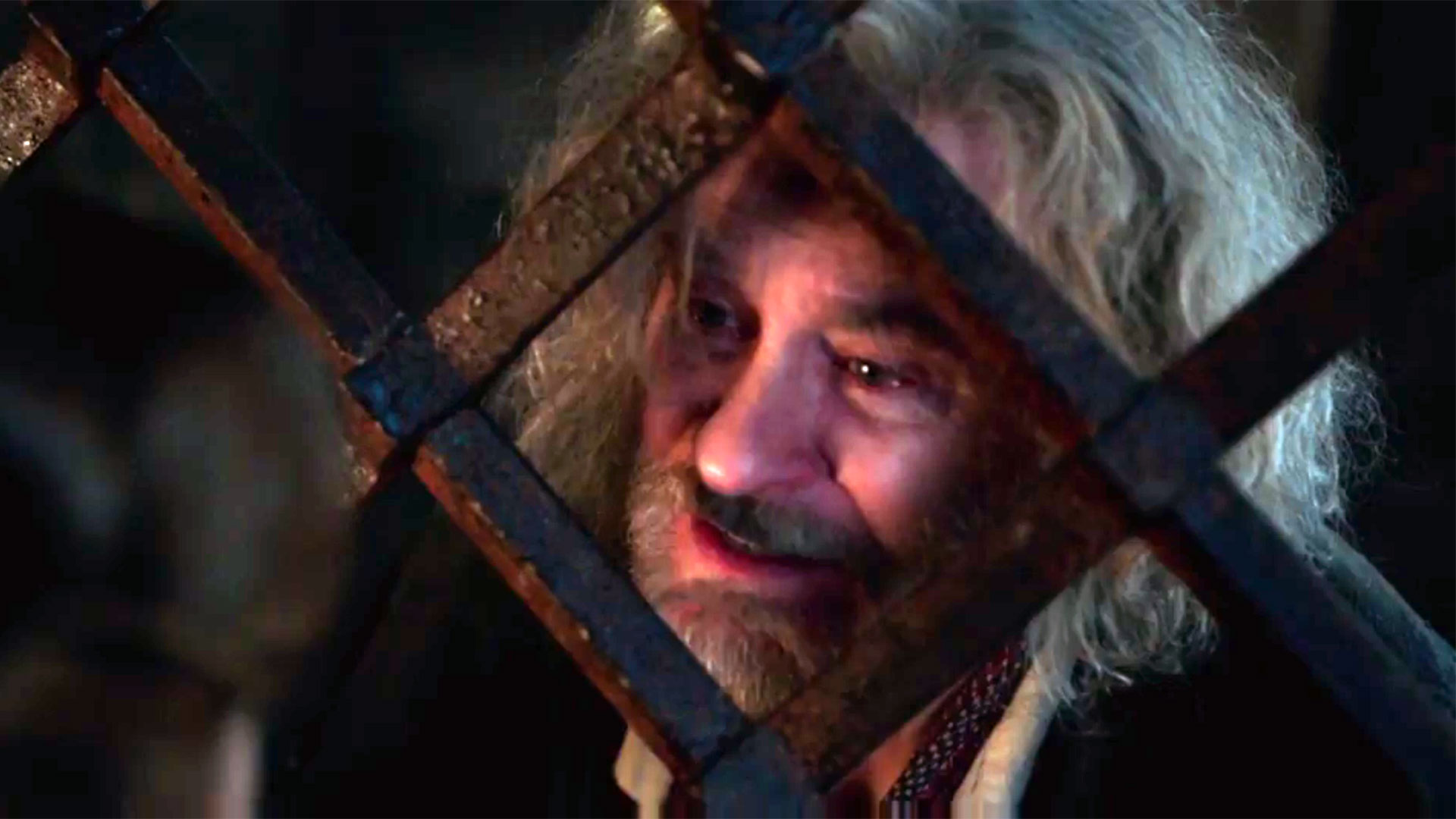
Imprisoned by the Beast
When Maurice was leaving for the market to sell his music boxes, Belle requested that he bring back a rose for his painting. He traveled at night with Philippe, the horse. Maurice was forced to take another route when lightning caused a tree to fall. He was spooked by the snow in summer and a pack of wolves that were ready for attack. Philippe managed to save him, escaping to the nearby castle grounds.
Instead of being greeted by someone, the castle came alive with objects that talked. Maurice fled quickly with the horse, only to be distracted by a rose bush. He wanted to keep his promise to Belle and stopped to cut a rose for her. The Beast roared in anger, imprisoning him for his deed.
Philippe raced back to get Belle as a rescue attempt. The Beast charged her father with thievery, sentencing him to lifetime imprisonment. She was offered to take her father's place. Out of love for him, Belle made the self-sacrifice that seemed so foolish to the Beast. The drama left the staff wondering if she's the one who breaks the spell.
Always the protective father, Maurice preferred that Belle remain in the safety of their village - like locking away the virgin in the tower. By leaving her at the castle, he gave away his daughter - a kind of marriage arrangement that he was forced to make.
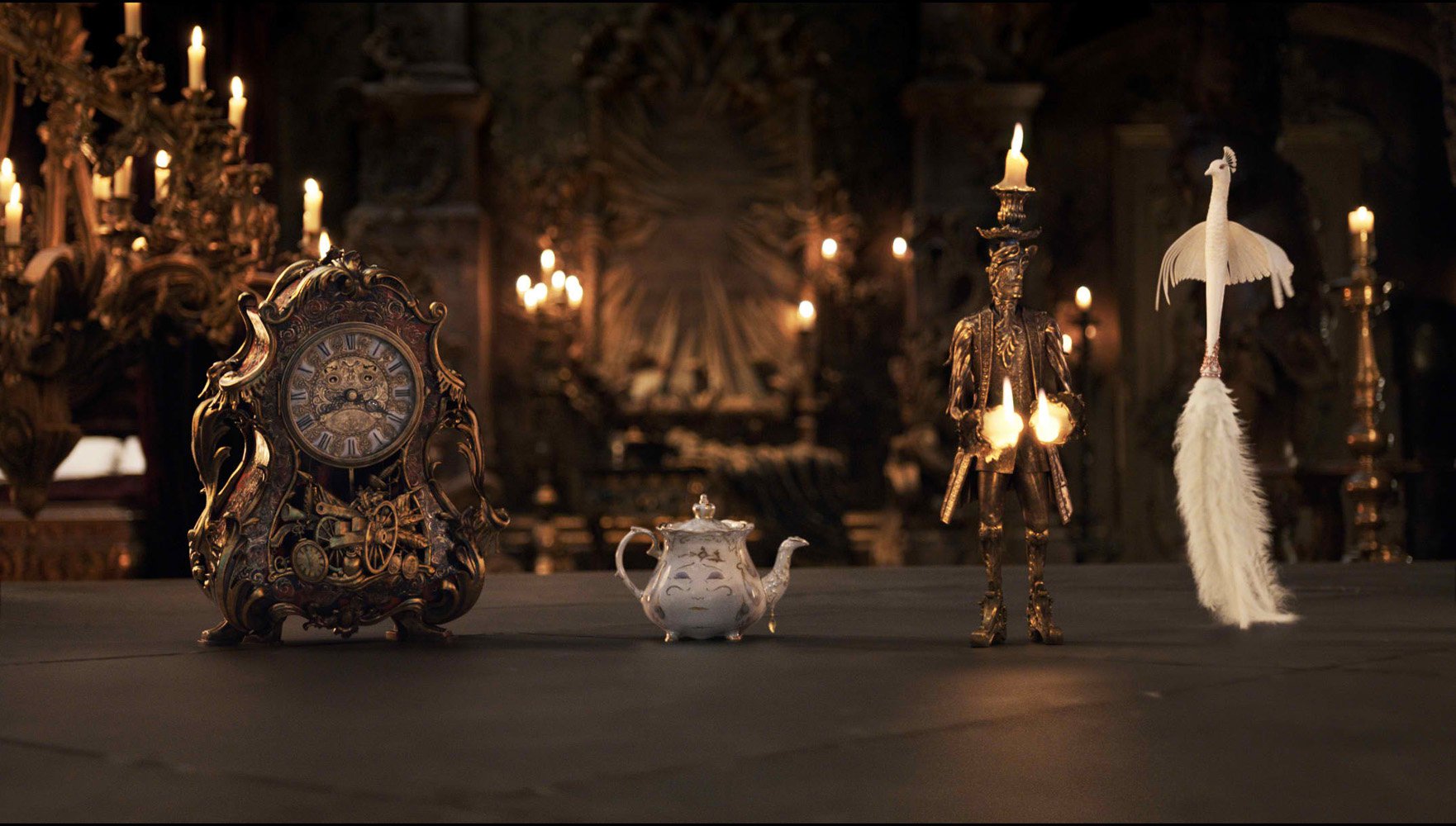
The Eager, Royal Staff
Imprisoned at the castle, Belle was given royal treatment by the servants, from the candle to the clock, pedestal and teapot. They lavished her with a room and beautiful wardrobe. Their only warning was that she stay away from the West Wing.
The objects, serving as staff help at the castle, represented the class consciousness of the mid-1700s. They were viewed less as people by the ruling aristocracy, undeserving of basic rights and dignity. The Prince included, treated his staff help like they were just functional, anthropomorphic objects that are there, just for his needs. This despicable attitude by the elite in France contributed to a class warfare that became the French Revolution in 1789.
Resisting Castle Life
The Beast demanded that Belle join him for dinner. She refused from behind the locked door, preferring to escape out the window. He pulled out the magic mirror left to him by the Enchantress to see Belle. Another petal from the rose fell that was ominously felt by the staff.
Mrs. Potts, the teapot, assured her that the Beast is not as terrible as he seems, by saying "Somewhere, deep in his Soul, there's a prince."
Belle ventured into another room to notice the paintings and a rose under a bell jar. The Beast showed up to scream at her for being there.
As a rose can also represent love, keeping it under glass and away from Belle was indicative of how the Beast was being closed-hearted and selfish with his love.
She escaped from the castle grounds with the horse, only to find herself defenseless against the wolves. Fighting to save her, the Beast fell from their attack. Belle kindly nursed him back to health at the castle. This was progress to the servants.
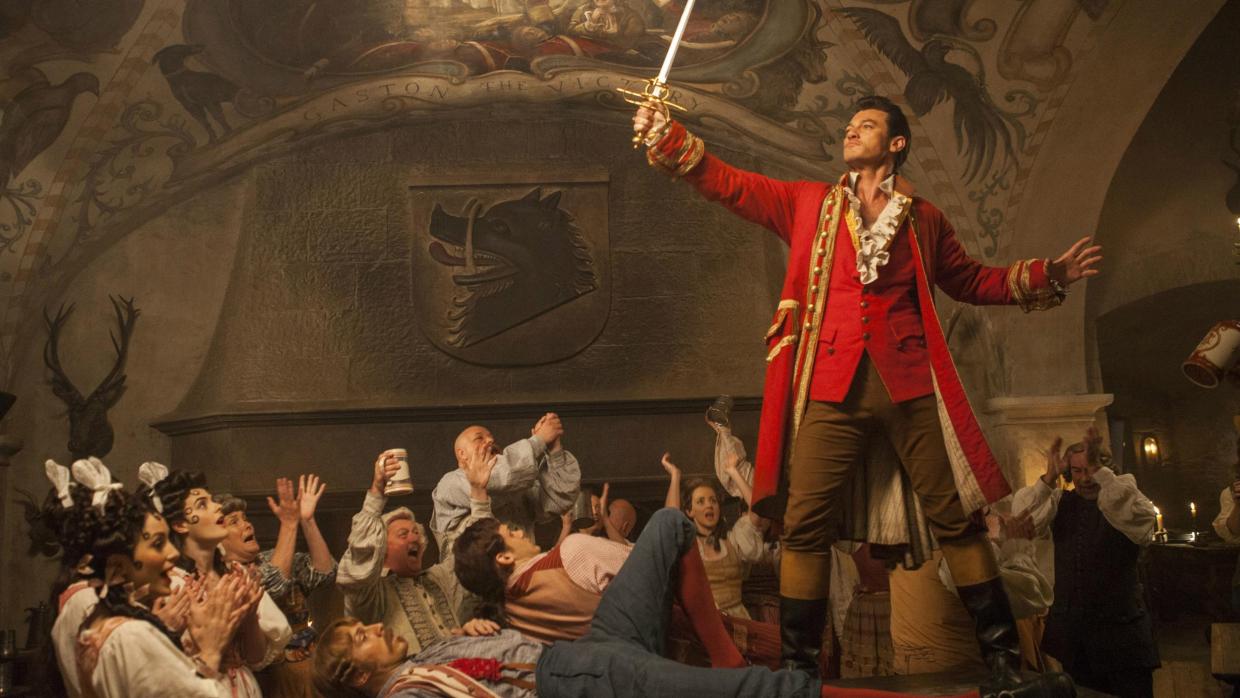
Gaston, the Villain
Maurice at the village tavern begged for anyone to go with him and save Belle from the Beast. His plea fell on deaf ears, except for Gaston, who was willing to be the family hero.
At the site where Maurice was originally lost, he noticed that the fallen tree had magically grown back, leaving him unsure about where the castle is located. Gaston grew upset, letting him know that he's only helping because he wants to marry his daughter. Maurice vowed that that would never happen, so Gaston knocked him out cold. Posing as a hermit, Agathe found him tied up and left alone to die. She graciously cared for Maurice in the woods.
Throughout the story, the real conspirator was Agathe. She was overseeing how the whole drama unfolded for the Beast to save himself from his boorish, lower nature. Agathe provided the curse and a way for Maurice to discover the castle. She was a shamanic healer with her owl as companion to symbolize wisdom and inner vision that can peer through the secrets and agendas of others.
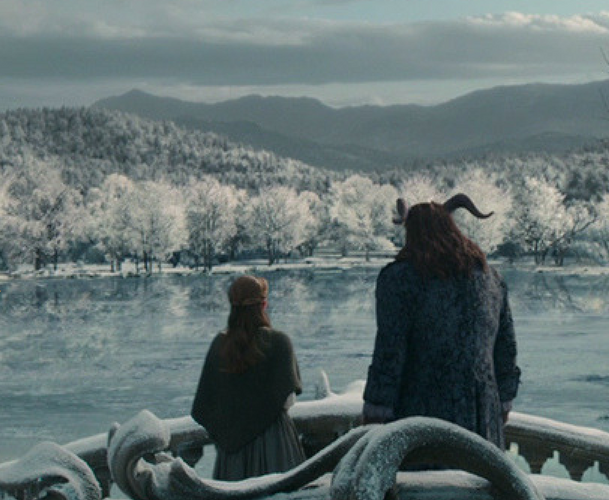
Falling for the Beast
As the Beast started to recover, Belle found him to be sweet, course and unsure. He gifted her with all the books in his vast library because she loved to read. They grew fond of each other from their times spent dining and going for walks on the castle grounds.
Based on the principle that when the giver is ready, the gift appears, this was true for Belle and the Beast. By doing the inner preparation to know themselves as worthy in a fearless way, they received their heart's desire.
The rose now represented a third meaning. Generational Herbalist, Denise Joy, teaches that the rose as an herb can provide clarity of vision when used for the eyes. Belle was seeing the Beast beyond the veils of outer illusion. By operating from Soul awareness, there is no duality, just wholeness and beingness. When you see the nature in each other, there's intimacy because "into me, I see you."
The Truth About Belle's Mother
Suggesting that they run away together, away from society that has misunderstood them, the Beast showed her a book that was given by the Enchantress. It allows the reader to magically escape. They held hands while Belle thought of a place in her mind's eye and felt it in her heart.
The book was a means of doing Soul Travel, that is also known as Direct Projection. It is a spiritual ability we all have and can master. Inner travel to other realms and dimensions with our Soul body is done by expanding our consciousness to where we want to go.
Belle took him to a dusty attic within the Paris of her childhood. Her mother had died when she was just a baby. The doctor's mask
nearby offered a clue that she had the plague, forcing Belle and her father to flee the city.
Typical of fairy tales, the heroine has no mother. By being in Paris, it was a means for Belle to finally let the child go to become a woman.
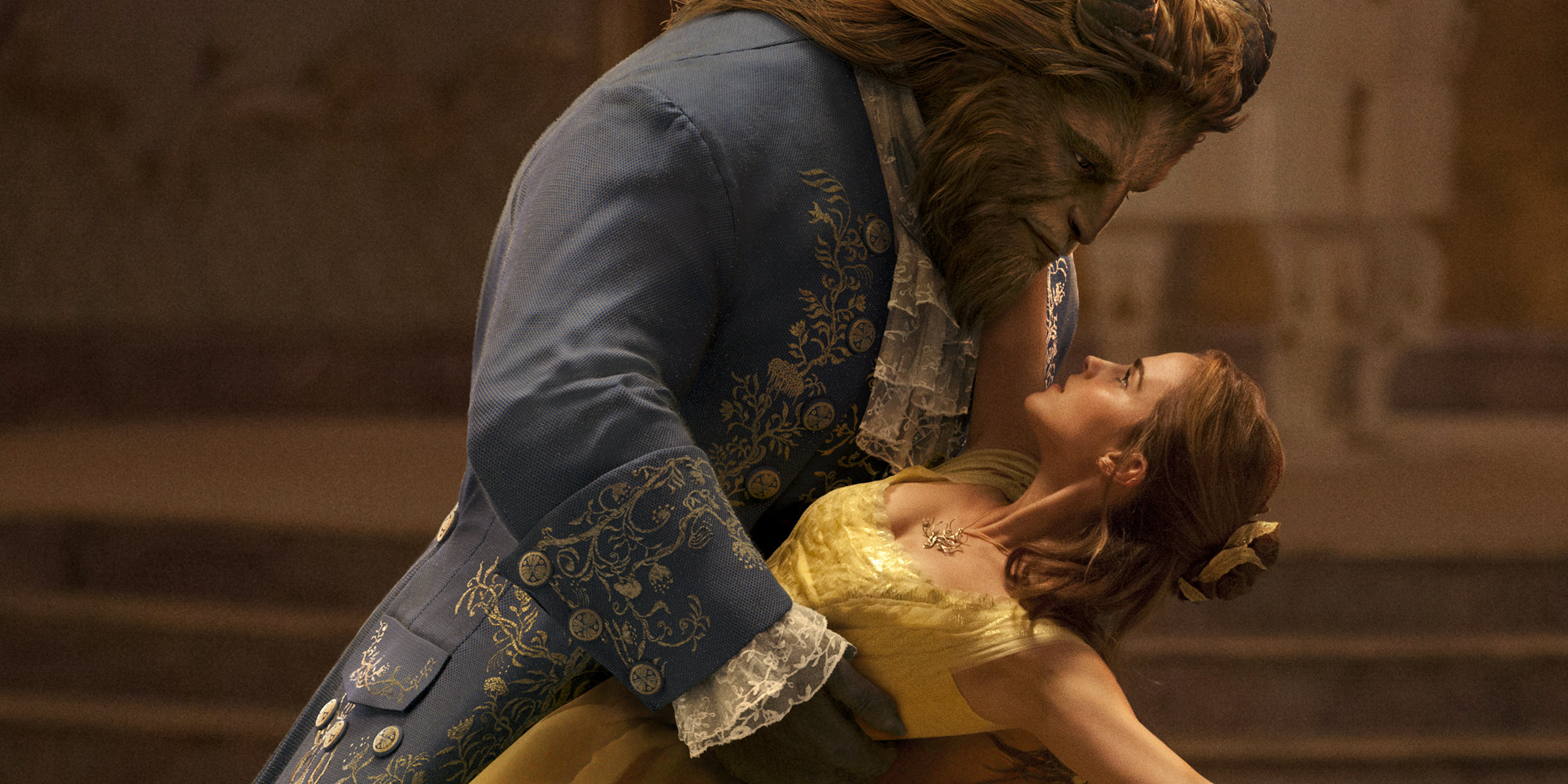
Running Out of Time
Agathe showed up at the tavern to confront Gaston. She accused him of trying to kill Maurice, so he called her a filthy hag. After convincing the villagers that Maurice is mentally off, he arranged to have him committed to an insane asylum under false pretenses.
As four more petals fell, the staff at the castle were eager to have the Beast tell Belle how he really feels about her. His golden opportunity was during dinner. It was an elegant affair as they dined and danced the night away.
When the Beast asked if he earned her affection, she told him, "I don't know. Can they be happy if they aren't free?" She grew sad at the thought of her father who taught her how to dance. Belle missed him dearly. The Beast understood, so he offered her the magic mirror to ease her pain. It showed them that her father was in trouble. She had to go to him at once and made a promise to return.
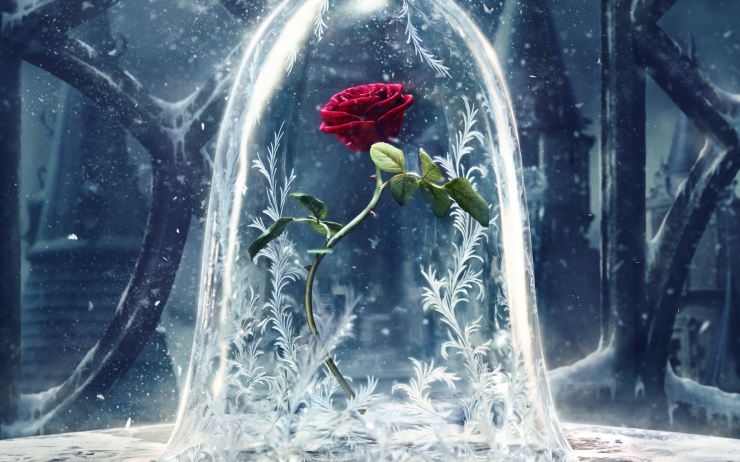
True Love Breaks the Spell
Belle's leaving was too much for the Beast. His heart grew heavy from melancholy to believe she may never come back. He was emotionally needy, dependent on Belle to make him happy again. For the Beast to mature in a relationship, it comes from giving yourself unconditional love, acceptance and approval. When we seek it outside of ourselves by expecting it, or even demanding it from others, this only leads to suffering.
With mirror as proof that the Beast really does exist, it was Belle's attempt to free her father. She was instead, thrown in the asylum with him when Gaston heard her talk about her feelings for the Beast. The villagers followed his lead, using the mirror, to storm the castle.
Gaston's rhetoric was effective to create a mob mentality. It's similar to how politicians use fear-mongering to turn humans into monsters, like singling out a group to be terrorists, so watch out for them. The real monster here is Gaston.
Unfortunately, the Beast was too depressed to defend his territory, so the staff fought the villagers off on their own. Meanwhile, Belle managed to escape from the asylum with her father and head for the castle.
The Beast was under surprise attack from Gaston. His mood lightened at the sight of Belle. Reuniting with her, he was fatally shot in the back, right before Gaston fell from the tower to his death and as the last petal dropped.
When Belle professed her love to the Beast, Agathe lifted the curse, bringing him back to life as the Prince. It was a joyous moment for all.
Subscribe to Beyond 50's Radio Updates!
Beyond 50 values your personal information. Your email will
not be used, sold, or
shared with any outside party.
Related Interviews:

Healing Ancestral Karma
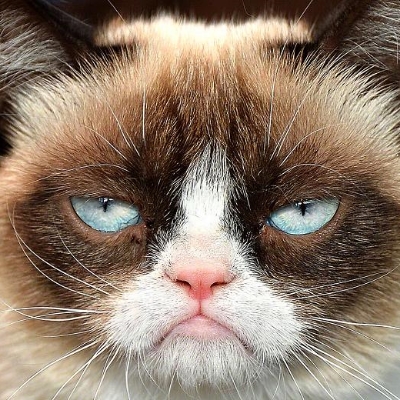
The 7 Habits of Highly Dramatic People

Calling in the One: Attracting Your Soul Mate in 7 Weeks
Watch It Now!





